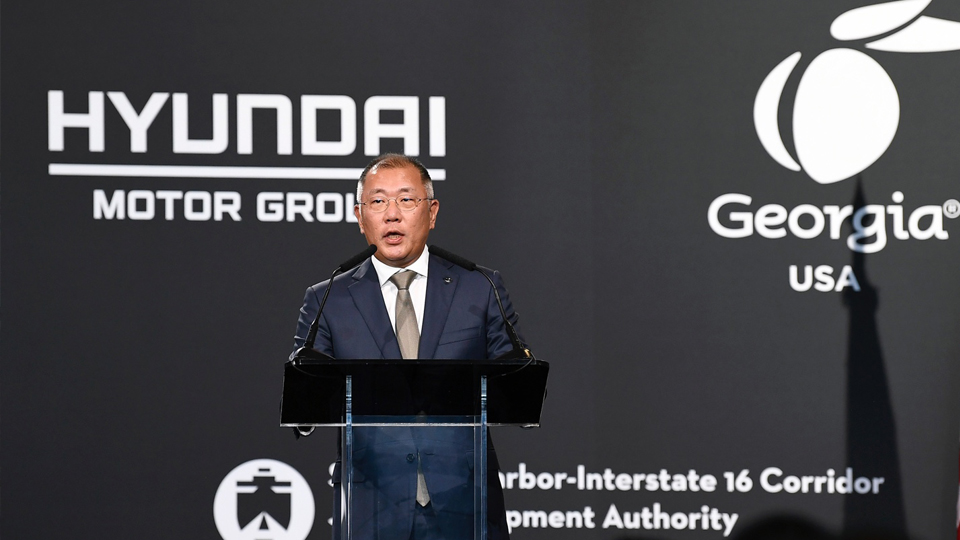Chung Eui-sun, Chairman of Hyundai Motor Group, recently embarked on a visit to Intel Ireland’s Leixlip campus on July 7. This strategic move reflects Hyundai’s drive to revamp its semiconductor supply chain, forge high-performance automotive semiconductors, and bolster internal technological prowess.
Chairman Chung delved into the intricate workings of Intel’s Irish campus in Leixlip, County Kildare, gaining insights into the semiconductor production process. This foray was aimed at comprehending the evolving landscape of global semiconductor supply chains, which are currently characterized by competitive fluctuations for dominance in various countries. The visit was also an effort to formulate adaptable strategies to ensure uninterrupted supply and demand of automotive semiconductors in the future.
Notably, Intel’s Irish facility, operational since 1989, holds a pivotal role in Europe. A cutting-edge semiconductor manufacturing site named ‘Fab34’ is under construction at the Leixlip campus. This facility is set to emerge as a hub for producing high-performance semiconductors, utilizing advanced manufacturing techniques like Extreme Ultraviolet (EUV).
The European Union’s active investment in the semiconductor industry, amounting to 43 billion euros by 2030, adds a dynamic backdrop. The EU’s response to the US semiconductor industry’s growth policy and China’s ascent in the field is reshaping the landscape. The Hyundai Group chairman was privy to the ’14nm FinFET (14FF)’ process within ‘Fab24’, guided by Ann-Marie Holmes, Intel’s co-executive vice president.
‘FinFET’ technology, a three-dimensional semiconductor architecture enhancing information processing speed and energy efficiency, is pivotal. ‘Fab24’ employs this approach to manufacture and supply central processing units (CPUs) for Hyundai Motor’s 5th generation infotainment system, present in models like Genesis G90 and Kia EV9’s ADAS.
Hyundai’s forward-looking perspective aligns with the industry’s rapid transformation. As automobiles evolve into intricate computers, the demand for high-performance automotive semiconductors is surging. These semiconductors serve as the bedrock for electric vehicles, autonomous driving systems, and Purpose Built Vehicles (PBVs). Vital for the transition to Software Defined Vehicle (SDV) systems, robust semiconductor chips capable of swift data processing are paramount.
Hyundai Motor Group is fervently fostering internal technological capabilities and high-performance automotive semiconductor development across the group. The merger of Hyundai Mobis and Hyundai Autron’s semiconductor divisions in 2020 aimed to streamline R&D efficiency. Striving to internalize core technologies, Hyundai seeks to enhance its standing in the high-performance semiconductor sphere.
Amid collaborations with global semiconductor giants, Hyundai Motor Group is channeling investments into promising semiconductor startups. A recent 2 billion won investment in Bose Semiconductor exemplifies this commitment. As the automotive landscape transforms, Hyundai is poised to champion innovation, strengthen its semiconductor supply chain, and drive technological excellence in-house.



